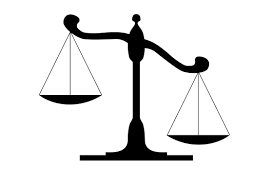THE Employment Relations Tribunal has the powers to deal with grievances filed against permanent secretaries, said Justice Anjala Wati in her ruling at the High Court in Suva yesterday.
Justice Wati made the ruling in the case of a teacher who was dismissed for allegedly inflicting corporal punishment on a student in a school in Rakiraki last year.
Praneel Dayal’s employment was terminated from serving as a teacher at Tokaimalo District School.
He then took his employer, the Education Ministry, to court for unfair, unlawful and unjustified dismissal.
The matter was first called in the Employment Relations Tribunal where his lawyer Damodaran Nair made an application that the matter be transferred to the Employment Relations Court for an opinion.
In her ruling yesterday, Justice Wati said it was affirmative that the tribunal had the jurisdiction and power to preside over the matter.
She said Section 127 subsection 7 of the 2013 Constitution stated that “the permanent secretary of each ministry shall have the authority to appoint, remove and institute disciplinary action against all staff of the ministry, with the agreement of the minister responsible for the ministry”, which prescribed the powers of the permanent secretaries.
However, she said, the said subsection does not set out the powers of the ERT, which could invoke the ruling or decision of the PS under Section 127(7) of the Constitution.
Justice Wati also highlighted Section 120, which dealt with the Public Service Disciplinary Tribunal.
Section 120 (9) of the Constitution states that, “In addition to such other functions as may be conferred by written law, the tribunal shall have the function of hearing and determining disciplinary action instituted by — (a) the Public Service Commission — against any permanent secretary; or (b) a permanent secretary, the Solicitor-General, the Director of Public Prosecutions or the Secretary-General to Parliament — against any person in their respective ministries or offices”.
Justice Wati said the effect of the said section was to hear a disciplinary action if it was instituted by one of the authorised personnel named in the provision.
“It does not in any event make it mandatory that there shall be a disciplinary action in all cases especially in one that warrants summary dismissal in view of the authority(s),” she said.
“In the final analysis, I find that the ERT has jurisdiction to hear this matter and that the employer was not bound to refer the matter to PSDT before dismissing the employee in this case.
“I now direct that this matter be heard by the ERT forthwith.”
News headlines:


